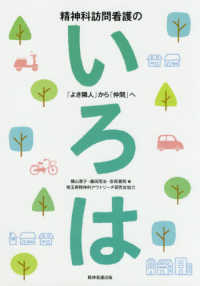Full Description
Debates in ICT and Computing Education explores the major issues teachers encounter in their daily professional lives. It encourages critical reflection and aims to stimulate both novice and experienced teachers to think more deeply about their practice, and link research and evidence to what they have observed in schools. Chapters tackle established and contemporary issues enabling teachers to reach informed judgements and argue their point of view with deeper theoretical knowledge and understanding. Debates include teacherless classrooms; personalised learning; creativity; digital literacy; visual literacy; e-tools; learning platforms; and opportunities for lifelong learning.
Contents
PART 1: KNOWLEDGE, TECHNOLOGY AND HUMAN COGNITION
Technology as tools to augment cognition
ICT and Computing as a subject - policy views
Effective computing pedagogy: personalisation and differentiation
How do students perceive ICT?
Teachers' perspectives on ICT at KS3' - views of ICT as subject
Gender and ICT & Computing
PART 2 THE WHOLE SCHOOL LEARNING ENVIRONMENT
Issues for teachers' continuing professional development
Using Web 2.0 technologies for enhancing teaching and learning
E-ethics and digital identities
Computing curriculum-computational thinking and creativity
Inquiring Minds and Digital Tools
"There is no such thing as a free lunch" - OERs, MOOCS vs QA, value and sustainability
Learning spaces and flipped classrooms
Bring your own device (BYOD)
PART 3 CLASSROOM APPLICATIONS
Debates in the use of tablets in the classroom
Using social media in the classroom - eg Facebook; what are the issues for and againist
Games based learning
Learning in an increasingly non-textual world
Programming and coding: how do you avoid death by Scratch?
Scratch and the new Computing curriculum: Creativity, Collaboration, and Cross-curricular teaching and learning.
Developing reflective practice in the classroom using ICT
Mobile video assessment





